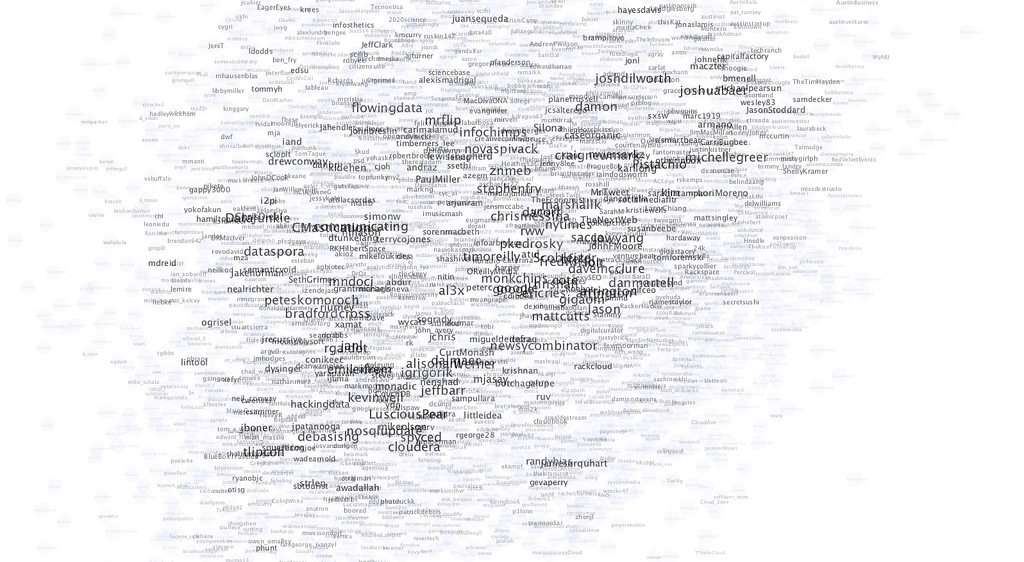
By Eric Wittlake, {grow} Contributing Columnist
The data that informs your marketing today is probably the equivalent of a few quick notes quickly jotted down on a sticky note on your desk.
I know, I know, we have more data than ever before. We have so much data we’ve even coined a name for using it. But five years from now, we’ll look back at “Big Data for marketing” and chuckle at how worked up we got over so little. Why?
The data we have today is just a tiny sliver of the data we will be swimming in soon.
Some of this new data may be terrifying. But the data we have today was terrifying in concept just 10 years ago. As we have in the past, we will come to accept that much of this data will be available in some form to marketers and other organizations. And as marketers, data and the technology that allows us to use it in marketing will become even more important.
Where is all of this data going to come from? Here are just a few of the sources.
1. Your phone
Your phone already knows where you go and what you do and apps are harvesting this data for everything from marketing to fraud.
According to Marble Security’s App Threat Report, they have “detected more than 4,300 malicious or highly risky apps that originate in the United States.”
That’s your phone. One of the big trends in digital advertising has been the near universal move to cross-device targeting, which means data tied to your phone is being linked to you and fueling advertising across all your devices.
You may have noticed that retargeting ads (the shopping cart contents that follow you across the web) now follow you from your phone to your desktop to your tablet. That data is now tied to you, not just a solitary device of yours.
2. Facial recognition
If you search for “cloud based facial recognition” you will quickly find a dozen companies that provide facial recognition as a service.
In the past, the Internet was “different” when it came to privacy issues. Offline, stores could identify you when you purchased. Online, they could tell when you just browsed. With facial recognition, offline browsing will be as identifiable as online.
Like in the Internet of Things, we will see a new breed of service providers that take this data (photos or videos) and provide a service over the top of it. As the technology becomes cheaper, security firms may even offer free monitoring to small businesses because of the value of the data they are able to collect and monetize separately.
(Note beacon technology from firms like Facebook, if adopted, could accomplish something similar).
3. The Internet of Things
Everything around us will be collecting and transmitting data. Our electrical system. Our refrigerator. Our self-driving car. As consumers, we’ll be able to do incredible things with this data.
- We’ll have insight into our energy usage and advice for how to lower our energy bills.
- We’ll be able to get menu suggestions based on what we have on hand, helping us to reduce waste (a statistic our refrigerator will also be able to guilt us with).
- We’ll be able to find people with similar schedules for carpooling or learn how to improve our gas mileage by changing our driving habits.
The important thing to recognize here is that every one of these benefits is not the result of a connected thing in our life. It is from separate services that use and analyze our data.
An example today is the Green Button Initiative, a program that allows us to download or push energy usage data to various applications. What are all these apps doing with your data? According to the privacy policy of one of the applications I reviewed, they may disclose anonymous information to a wide range of organizations, including “other interested third parties.” Oh, did I mention, they also connect to your Facebook account, so you can compare your energy usage with friends? In other words, they know exactly who you are.
The Internet of Things will usher in a new industry of services designed to collect, analyze and often sell our data.
4. Digital records of everything
Our transactions are digital. Our medical records are digital. Our phone records are digital. Now that all of this information is digital, it is easy for companies to transmit and analyze.
Two weeks ago, The Wall Street Journal published “Provider of Personal Finance Tools Tracks Bank Cards, Sells Data to Investors.” While Yodlee refutes some of the information, the story highlights how our information, now that it is digital, is collected and used by a wide range of companies.
Tying it all together
This may seem a little far-fetched to some of you reading this. Businesses wouldn’t actually buy information like this, would they? It is too many individual sources and just a little bit too seedy to be adopted by today’s image-conscience enterprise.
No, it isn’t. There are two factors that will drive the use of this type of data in marketing and advertising.
- The realities of competition. When your scrappy upstart competitor is doing it and you are pressured to drive results, you will inch towards their tactics. This is how so many companies ended up using black hat SEO tactics in the past.
- Data is the new competitive foundation that services are being built on. Businesses are collecting data and packaging it into various offerings, providing a comfortable buffer between marketers and any individual data source.
This second point is worth reinforcing. Data consolidators are big business today. They provide a single source of data compiled from various sources. According to a recent article in the NY Times, “The Federal Trade Commission has strained to understand personal data markets — a $156-billion-a-year industry — and it can’t find out where the data brokers get their information, and whom they sell it to.”
What are you doing to get ready to market in tomorrow’s world of data driven marketing?
 Eric Wittlake spends his days working with B2B marketers and (occasionally) shares his marketing views on his personal blog, B2B Digital Marketing. You can find him on Twitter (@wittlake) when he isn’t working with B2B marketers.
Eric Wittlake spends his days working with B2B marketers and (occasionally) shares his marketing views on his personal blog, B2B Digital Marketing. You can find him on Twitter (@wittlake) when he isn’t working with B2B marketers.


